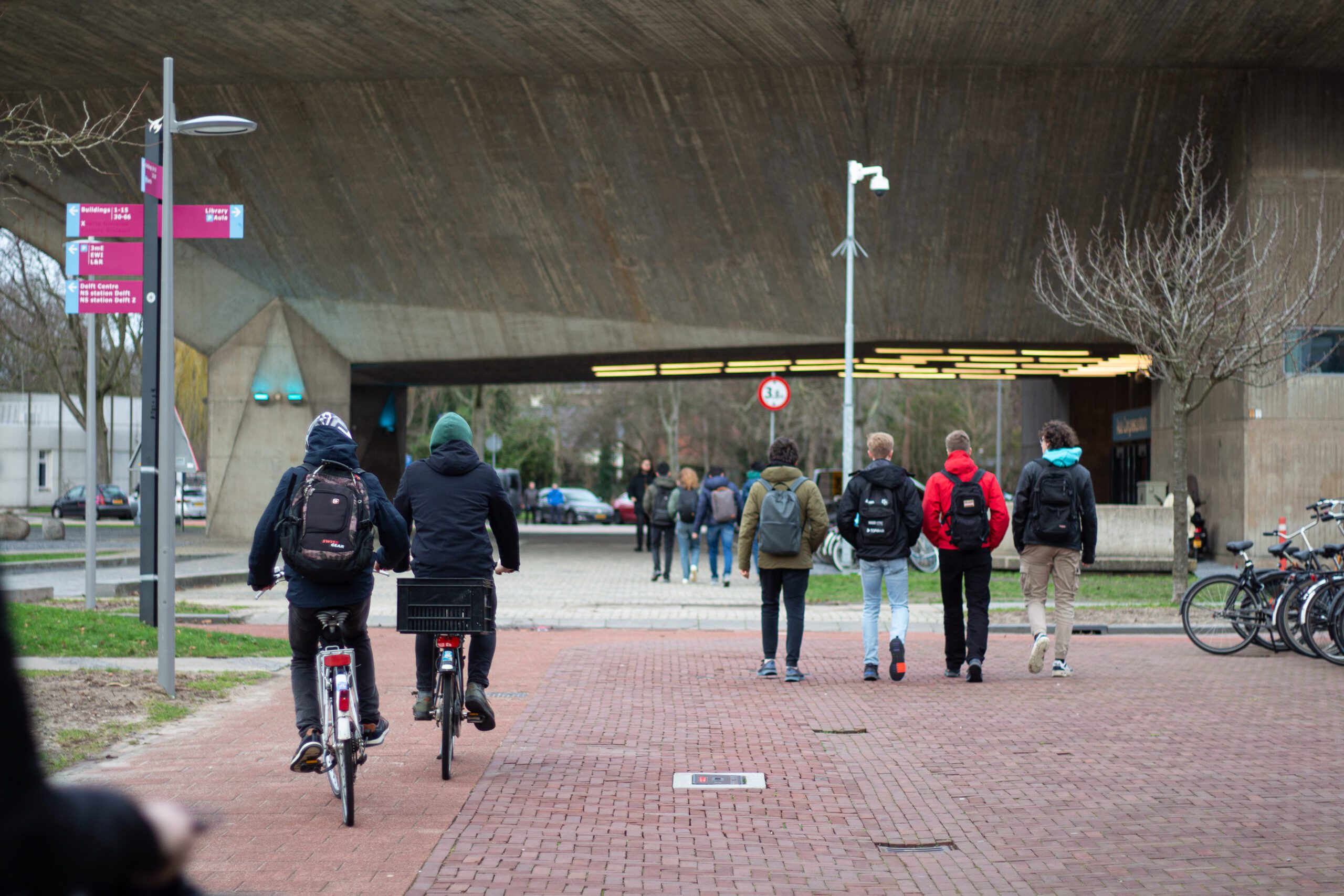The FNV, CNV and AOb unions started a survey on 6 February to see how employees are experiencing social safety and leadership in the workplace. They did not want to wait for the Inspectorate of Education’s reassessment that was started earlier this week.
(Photo: Justyna Botor)
Since the publication of the Inspectorate of Education’s report on the lack of social safety at TU Delft, both the Inspectorate of Education and the Netherlands Labour Authority have carried out various evaluations, but the FNV, CNV and AOb say that important questions remain unanswered.
Therefore, they are now distributing a survey to employees. One of the key issues that they want greater clarity about concerns TU Delft’s leadership. “The Inspectorate of Education’s report shows that there are major problems around social safety and that leadership plays an important part in this,” explains Gijs Kooistra, board member of the FNV union. “We want to know exactly how staff members experience the different levels of leadership, be it their direct supervisors or the Executive Board.”
The survey thus contains questions like whether staff members feel heard. Do they experience TU Delft as a democratic organisation? Does the experience vary according to faculty or service? The survey also gives staff the opportunity to suggest ideas for improvement. The unions can use their input in discussions with the Executive Board.
Anonymous
The survey is anonymous. To protect staff members’ privacy, the answers will only be presented if they are shared by groups of at least 25 people. “There is still a culture of fear in some parts of TU Delft,” says Kooistra. “This is why we are stressing that staff members can share their thoughts safely.”
The results will be shared with both staff members and the Executive Board
The unions want to reach as many staff members as possible, but they are experiencing hurdles. Despite agreements made about using internal channels of communication, the survey may not be made known at TU Delft through computer screen information or on the intranet. “This is a shame,” says Kooistra. “This is done without problems at other universities, but support here is not permitted.” When asked by Delta about the reason for this, TU Delft did not respond.
To inform people about the questionnaire, the unions are using other means of communication. Members will receive direct emails with the link, the unions are distributing flyers containing QR codes on campus, and they are using external platforms to make the survey known.
Results
Staff have about one month in which to fill in the questionnaire. After that the answers will be analysed and the results will be shared with both staff members and the Executive Board. “It is important for us that we get objective information so that we can come up with clear proposals to improve social safety and leadership,” says Kooistra. “The survey should give us both a picture of what is going wrong as well as what is going well. That knowledge will help us propose effective changes.”
The unions are hoping that large numbers of staff members fill in the questionnaire and that the outcomes will help bring about tangible improvements in the organisational culture. “This is a good opportunity to be heard,” says Kooistra. “And we will work hard to make that voice heard.”
What did the Inspectorate of Education say about TU Delft again?
The Inspectorate of Education investigated transgressive behaviour at TU Delft from December 2022 to November 2023. In the resulting report, the investigators speak of intimidation, racism, sexism, bullying, exclusion, gossiping, social insecurity due to lack of leadership and a culture of fear, among other things. For instance, employees are said to be afraid to voice their opinions and hold each other accountable for behaviour.
The effects among TU Delft employees who have reported to the inspection are often long-lasting and hampering. The inspectorate speaks of psychological and physical health complaints, absence from work and a general feeling of insecurity. Stress, burnout, depression and PTSD, crying and tense home situations also occur, as do illness, vomiting at work, panic attacks and heart palpitations.
The inspectorate reports that TU Delft’s university administration has a lot of information regarding what is happening in terms of social safety, but that they ‘omit to add everything up so as to create a complete picture’. ‘The management’ also ‘does not adequately manage in terms of appropriate measures’. The Inspectorate believes that this is mismanagement.
Read the news and background articles on the Inspectorate’s report in our dossier.



Comments are closed.